MagLiteracy: Sharing the literacy love

The sweet smell of cardboard boxes – that tinge of vanillin – swirls through the Atrium warehouse in Johnstown, Ohio.
Emma Mann, 18, walks across a skinny path of concrete floor lined with stacks of priority mail and brown boxes. In the cardboard abyss, Mann points out boxes marked “Political Journals,” “Culinary,” “Coding.”
Mann, a resident of Heath, Ohio, volunteered with the Newark Food Pantry during high school and graduated in May 2023. Now a full-ride scholarship to the College of Wooster awaits Mann after a gap year between high school and college she spent working for MagLiteracy.
MagLiteracy, a Johnstown-based nonprofit, hopes to bridge the literacy gap by providing reading materials for all ages and interests to “end poverty of the mind, heart and pocket,” according to the organization.
After working in food banks and hunger relief projects for decades, MagLiteracy Founder John Mennell realized that families without food owned few reading materials – or sometimes none at all.
Since then, the organization has partnered with other local nonprofits and advocacy organizations like local food pantries to bring reading materials to families who otherwise couldn’t afford them.
“I love volunteering but was looking for a permanent position,” Mann explains, “which snowballed into my role at the food pantry.”

While Ohio is its home turf, MagLiteracy has a secondary location in Madison, Wisconsin, and hopes to expand nationwide.
The organization’s efforts have put reading materials in far-away places, like humanitarian projects at the southern border in Texas, an orphanage in Greenland, Inuit schools north of the Arctic circle, populations in the Mississippi River Delta, and local 12-step recovery programs.
At this point, Mennell and MagLiteracy have supplied magazines to hundreds of thousands of low-income families across the globe from their 100,000-square-foot Johnstown warehouse, filled to the brim.
The warehouse
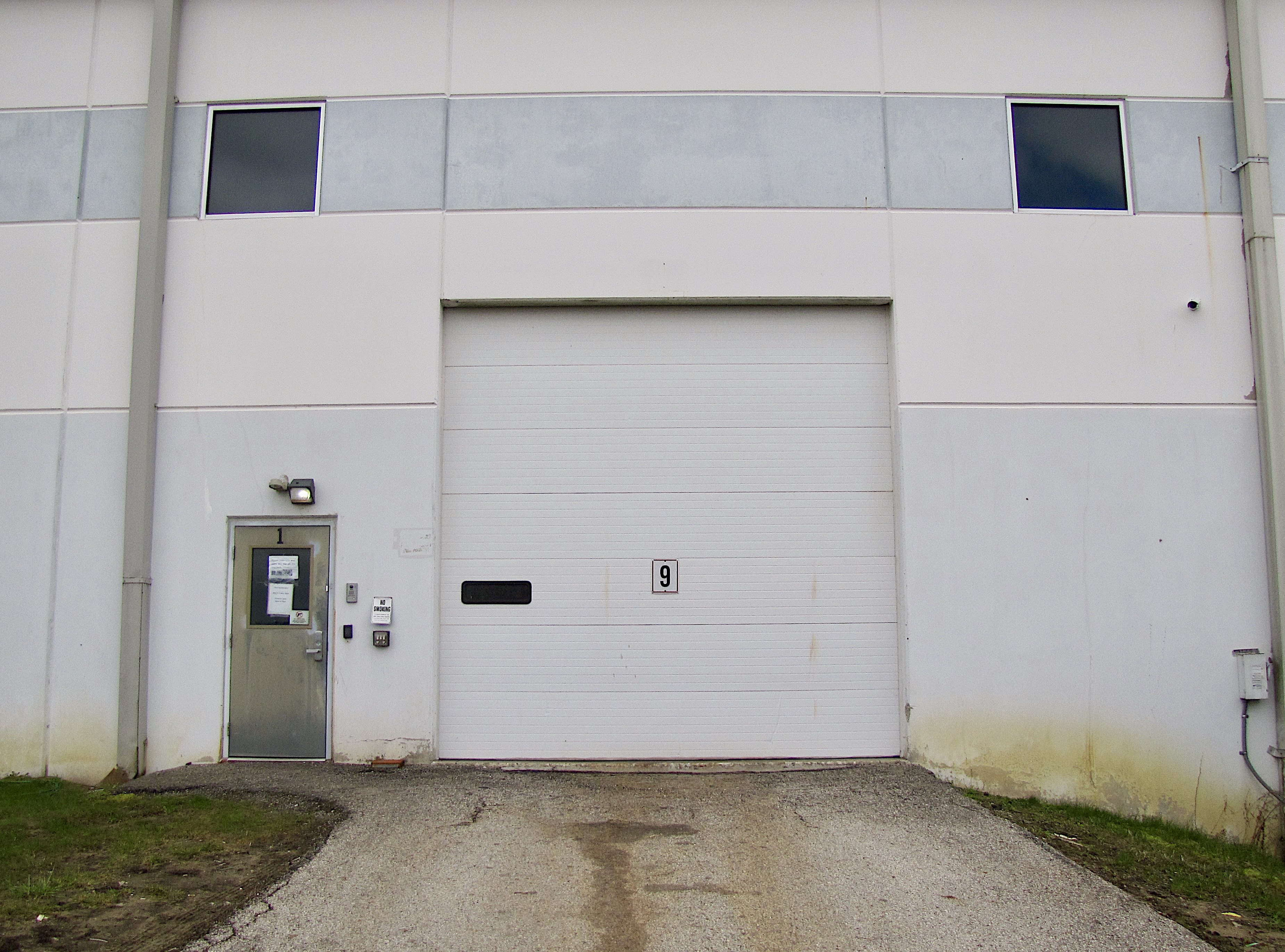
Mann has held her community outreach role at MagLiteracy for about a year and can be found working at the Newark Food Pantry, but also assists in moving products from the pantry to their warehouse.
“When MagLiteracy was first getting off the ground,” Mennell explains, “we received a shipment of thousands of magazines and had nowhere to put them."
Through mutual connections, the organization was connected to the Atrium warehouse and granted space for three months, cost-free.
Atrium Corporation’s warehouse is home to several other businesses and ventures in addition to MagLiteracy. As the three months came to an end, they extended a full-time, permanent spot to MagLiteracy.
More volunteers were reaching out to MagLiteracy. New and recycled magazines were being donated constantly. More residents of Licking County were slipping below the poverty line.
MagLiteracy’s space, in a corner of the warehouse, is overflowing with magazines to sort through. Atrium handles all of the heavy lifting, utilizing its machinery to move products, pallets, and truckloads.
The organization receives packages from publishing companies, retired teachers, consumers, children’s programs, and more. And it’s not just used magazines – some supporters have gone as far as purchasing brand-new magazines for the cause.
“We get a lot of these Highlights,” Mennell, a 63-year-old Granville resident says, holding the brightly colored publication. “They are children’s magazines, and we receive new editions from the same woman. I imagine her going to a news rack and buying $100 worth.”
On the second Saturday of each month, volunteers meet at the Atrium warehouse and spend the afternoon building “packs” of magazines.
“We try to give each bundle a variety of magazines,” Mann explains, “so there is something for everyone.”
When a recycled magazine is repurposed, the organization covers the name and address of the purchaser, giving the publication a new life in the hands of whomever it may fall in.
Before MagLiteracy grew into an Atrium-sized project, it had humble beginnings in Newark, Ohio.
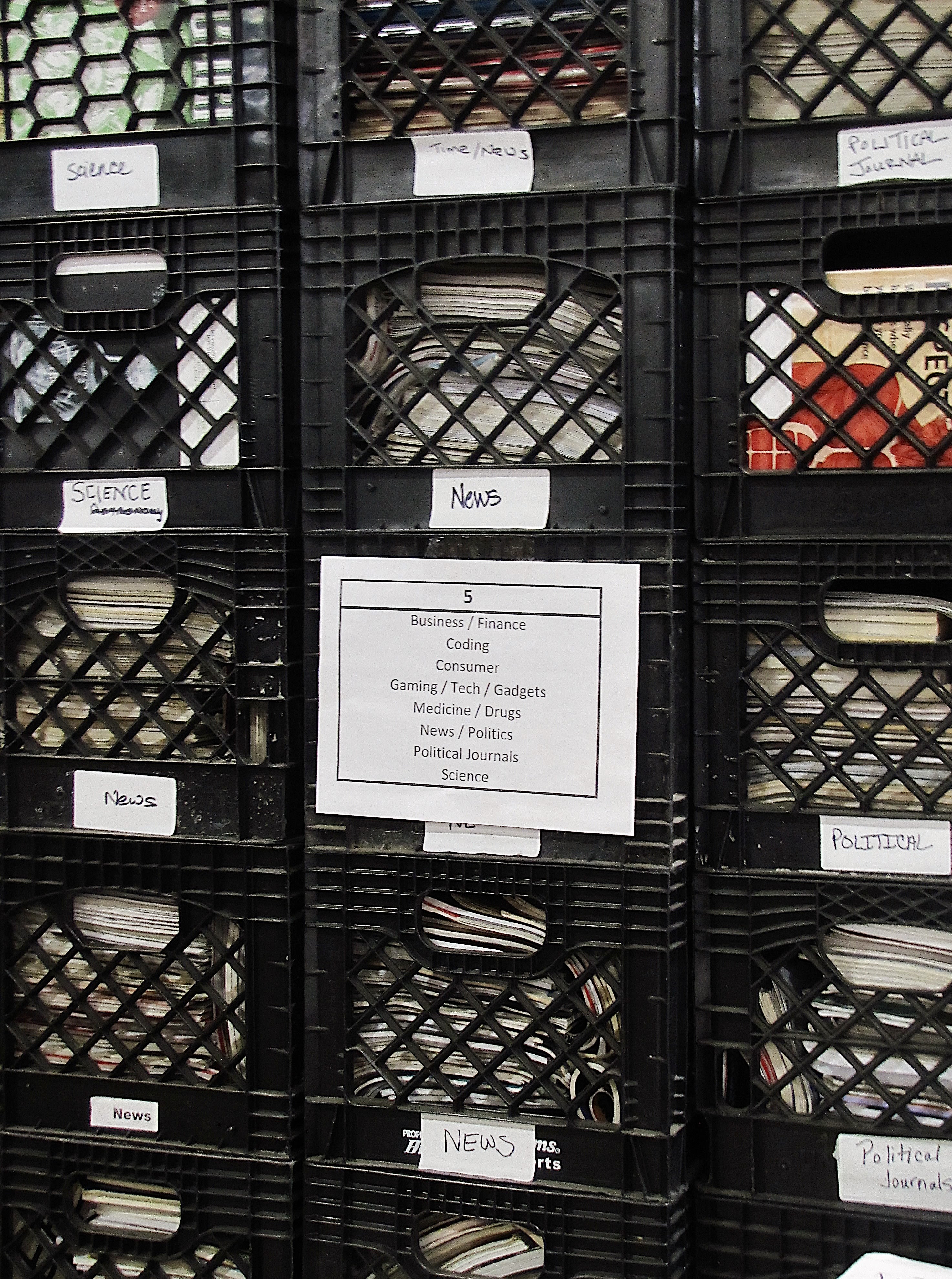
Milk crates packed with magazines, organized by genre.
Milk crates packed with magazines, organized by genre.
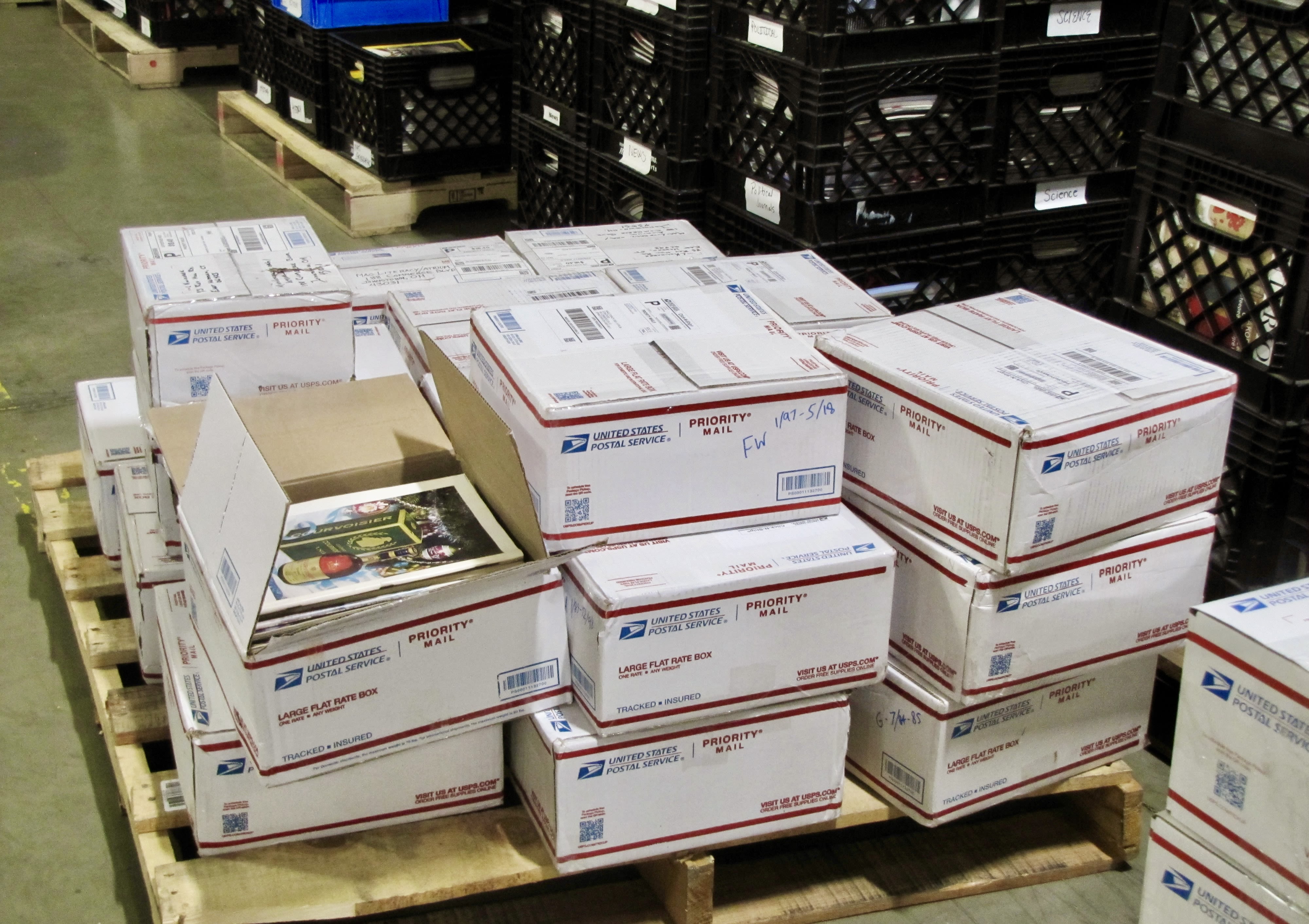
Boxes and boxes of magazines on pallets await sorting and distribution.
Boxes and boxes of magazines on pallets await sorting and distribution.
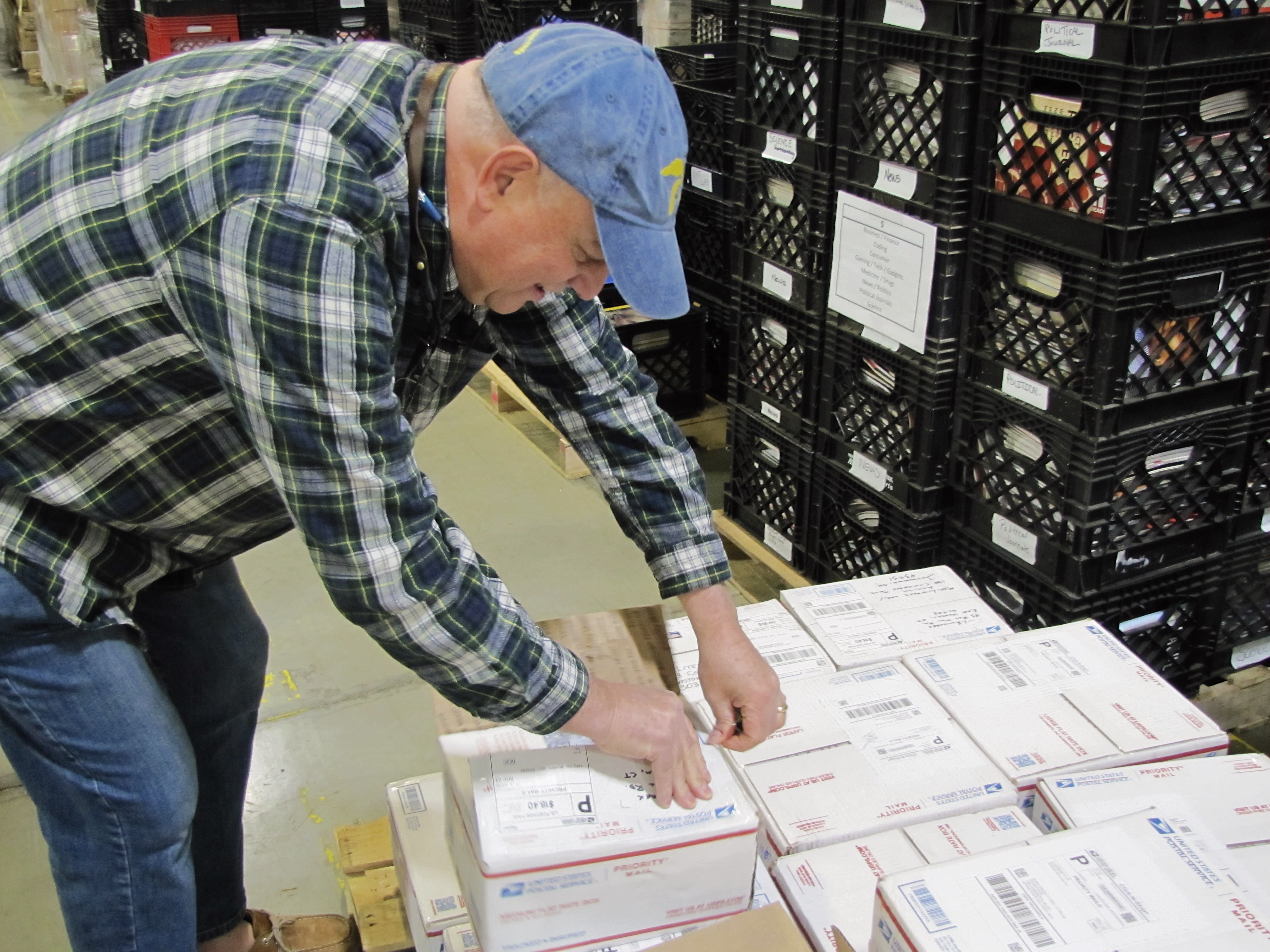
Founder John Mennell opens a random box of magazines, eager to see what's inside.
Founder John Mennell opens a random box of magazines, eager to see what's inside.
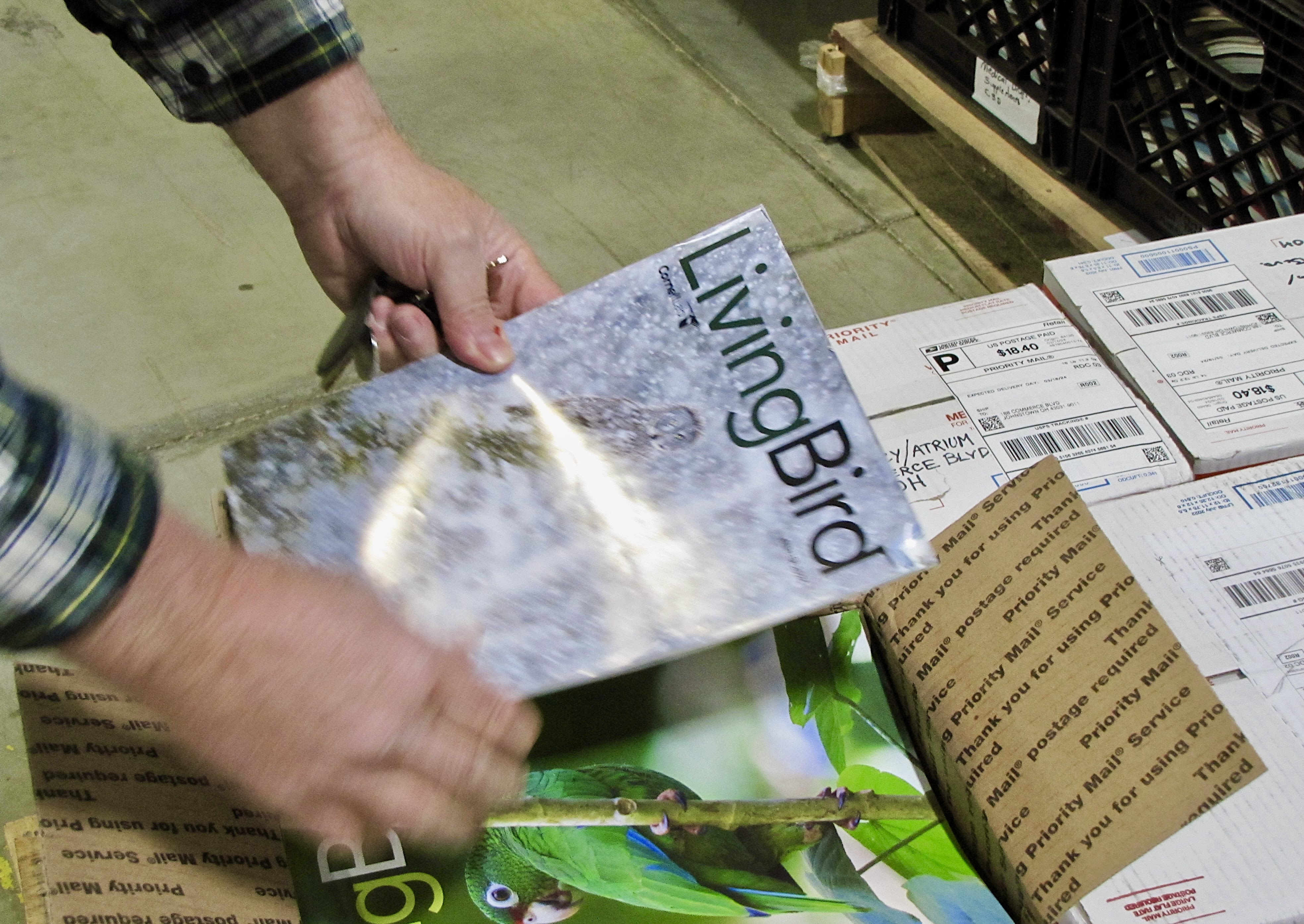
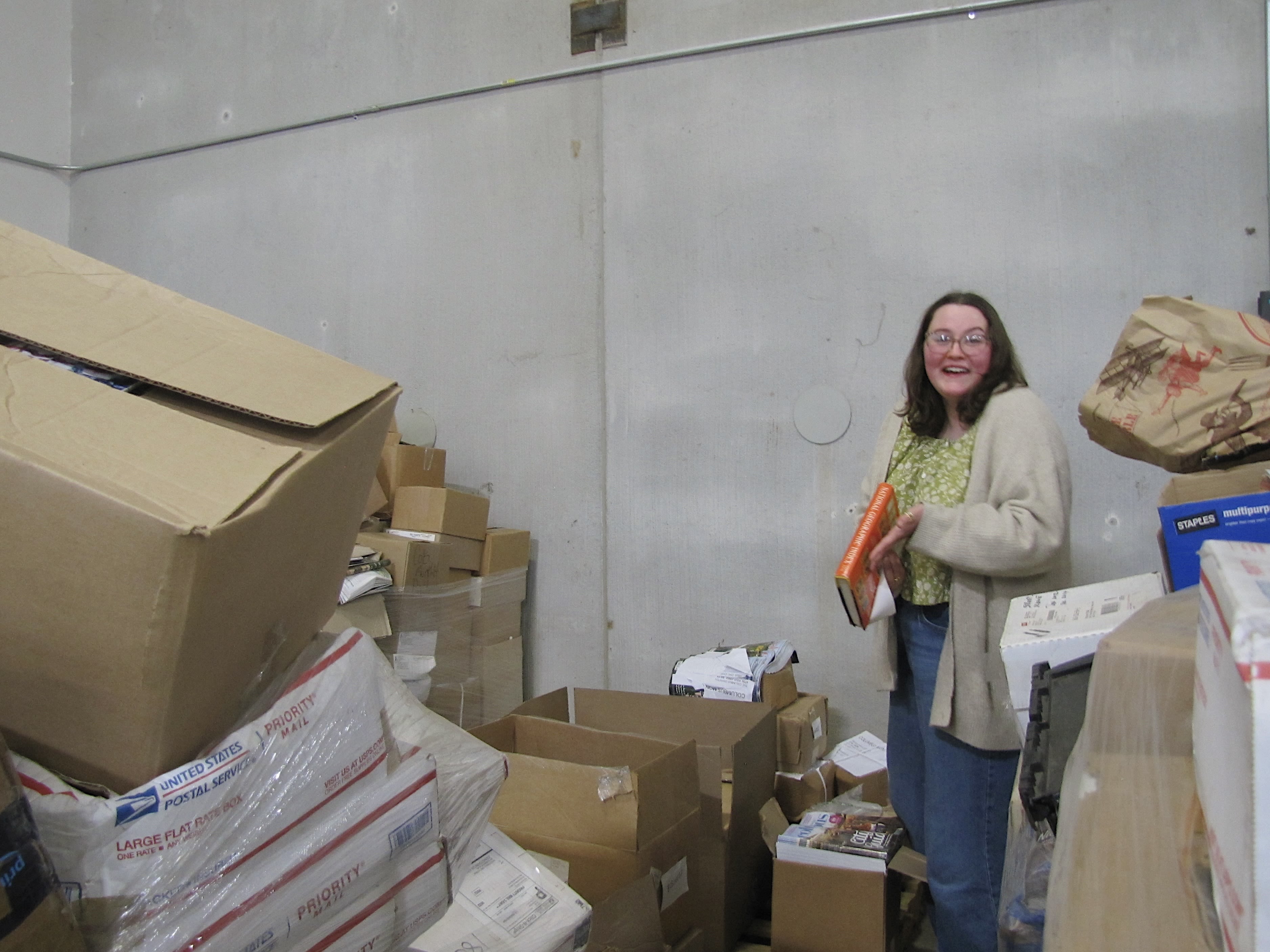
Mann finds a hardcover book hidden in the magazines.
Mann finds a hardcover book hidden in the magazines.
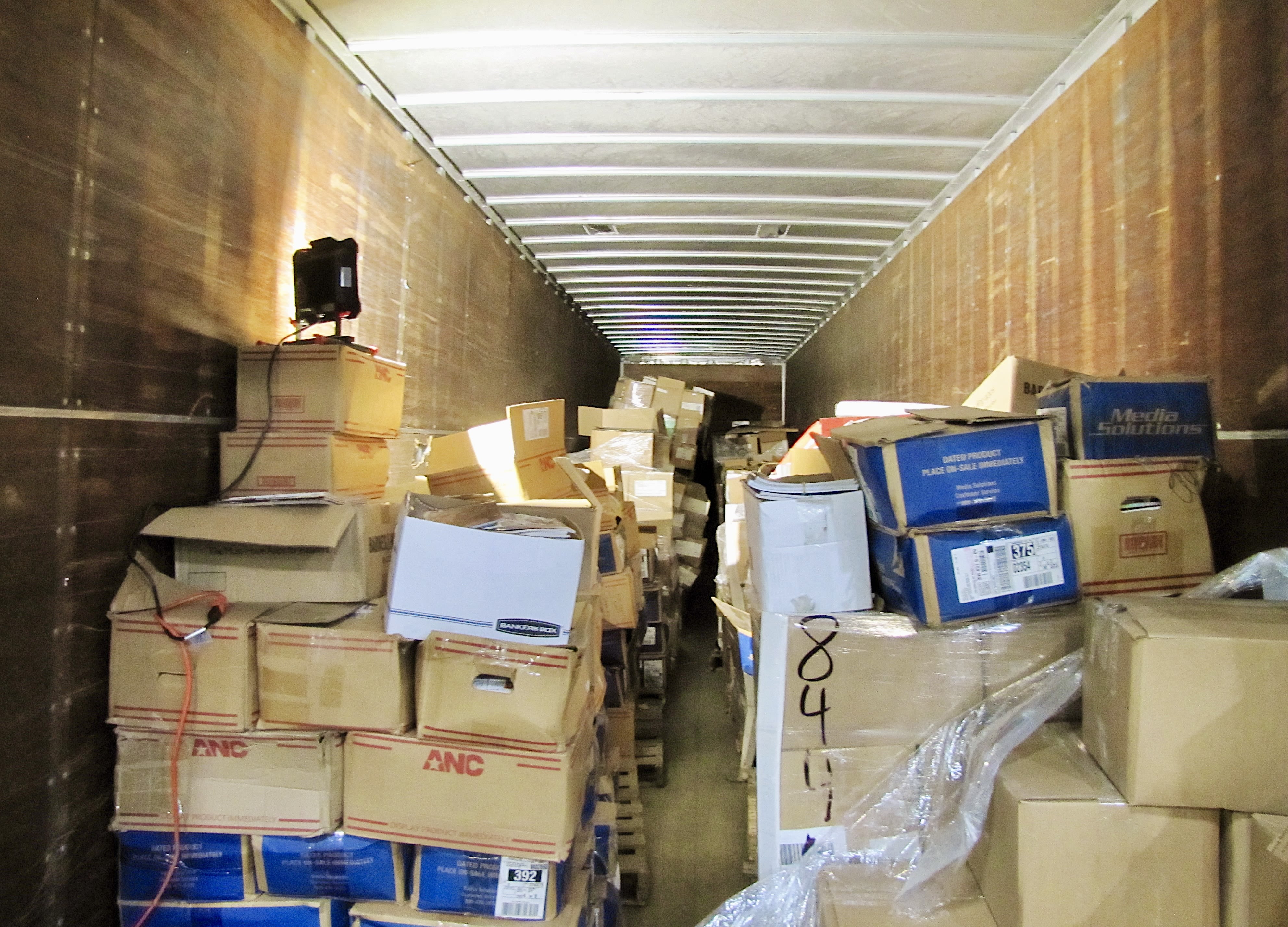
What used to be a small newsstand, among the produce and dry goods, has grown into a miniature library, full of magazines. All of the magazines are available for families and individuals.
The Newark Food Pantry is one branch of an overarching organization, the Food Pantry Network of Licking County (FPN), specializing in food insecurity in the region.
Chuck Moore, the Executive Director of FPN, immediately embraced MagLiteracy.
“I came to Chuck with a proposition of implementing magazines into the pantry, but he agreed instantly,” Mennell said with a laugh. “There wasn’t much persuading. The only reason MagLiteracy is based in Ohio is because of Chuck.”
“Yeah. Good.” Moore, 51, says bluntly. “I mean if someone comes to me with a concrete plan of A plus B equals C, how could I say no?”
With nearly two dozen volunteer-run pantries in Licking County, FPN plans to grow, and adopt fresh produce as a food pantry standard. Moore, a Nashport resident, works hard to ensure that dry, frozen, and dairy goods are available every day of the week.
At the beginning of 2024, Moore and the Newark Food Pantry adapted to customer-centric services, providing a better system for residents to obtain food.
Mann explains the process as “a normal grocery store trip. People sign in at the door, grab a shopping cart, and browse the aisles.”
“The demographic we get in the pantry is versatile,” Mann says, “and hundreds of families are applying for affordable housing in Licking County.”
Mann has seen 90-year-old women, other adults, toddlers and teenagers stroll into the pantry and leave with food and a magazine.
When Moore noticed how much attention the magazines were garnering, he expanded the space for them in the pantry.
“By addressing literacy, we aid with competency, ownership, and more,” says Mennell. “It’s a virtuous cycle. These issues were a perfect match.”
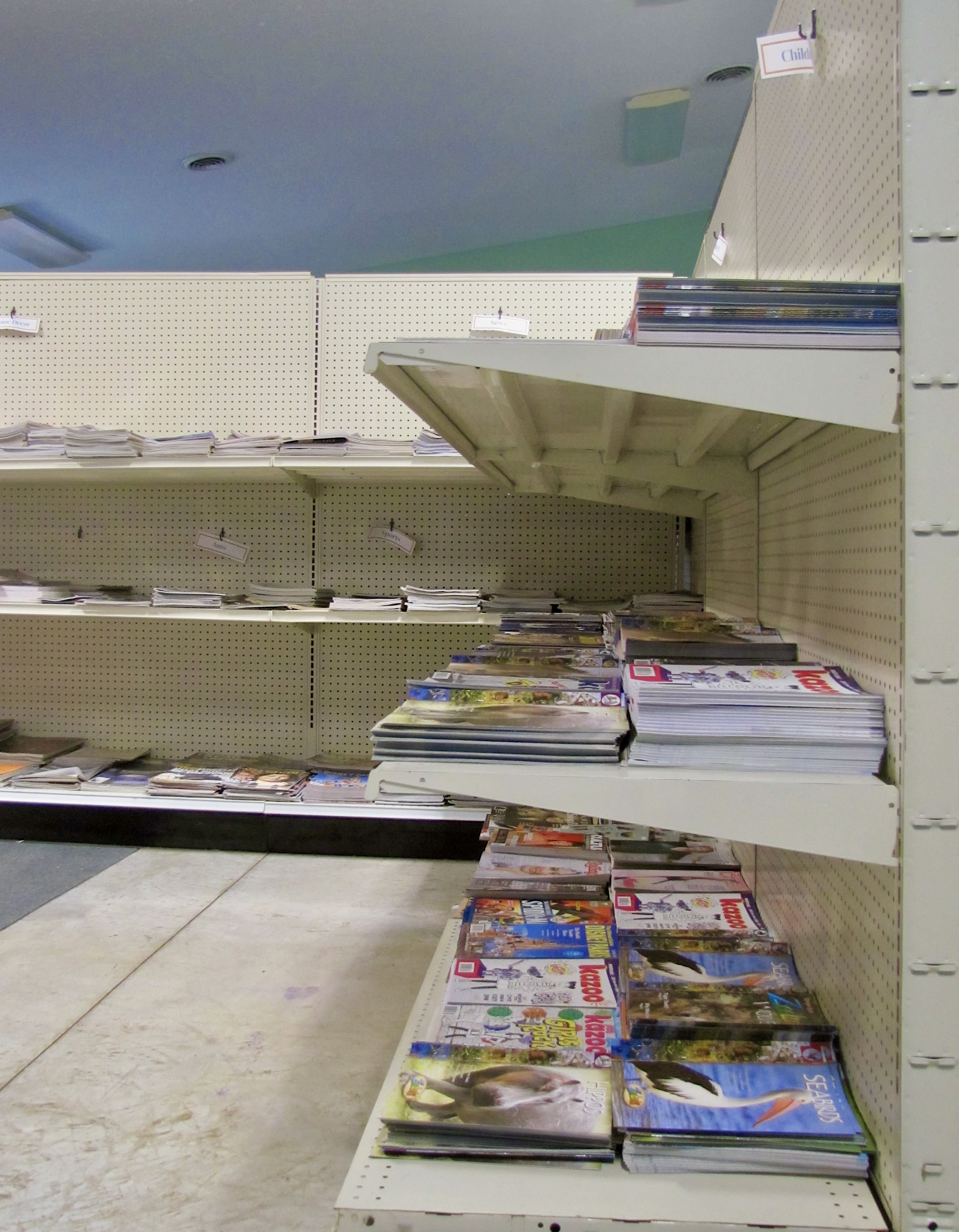
Mann and Mennell move cardboard boxes through a drizzling rain. With boxes stacked up in their arms or piled in a shopping cart, they run to their black Sedans.
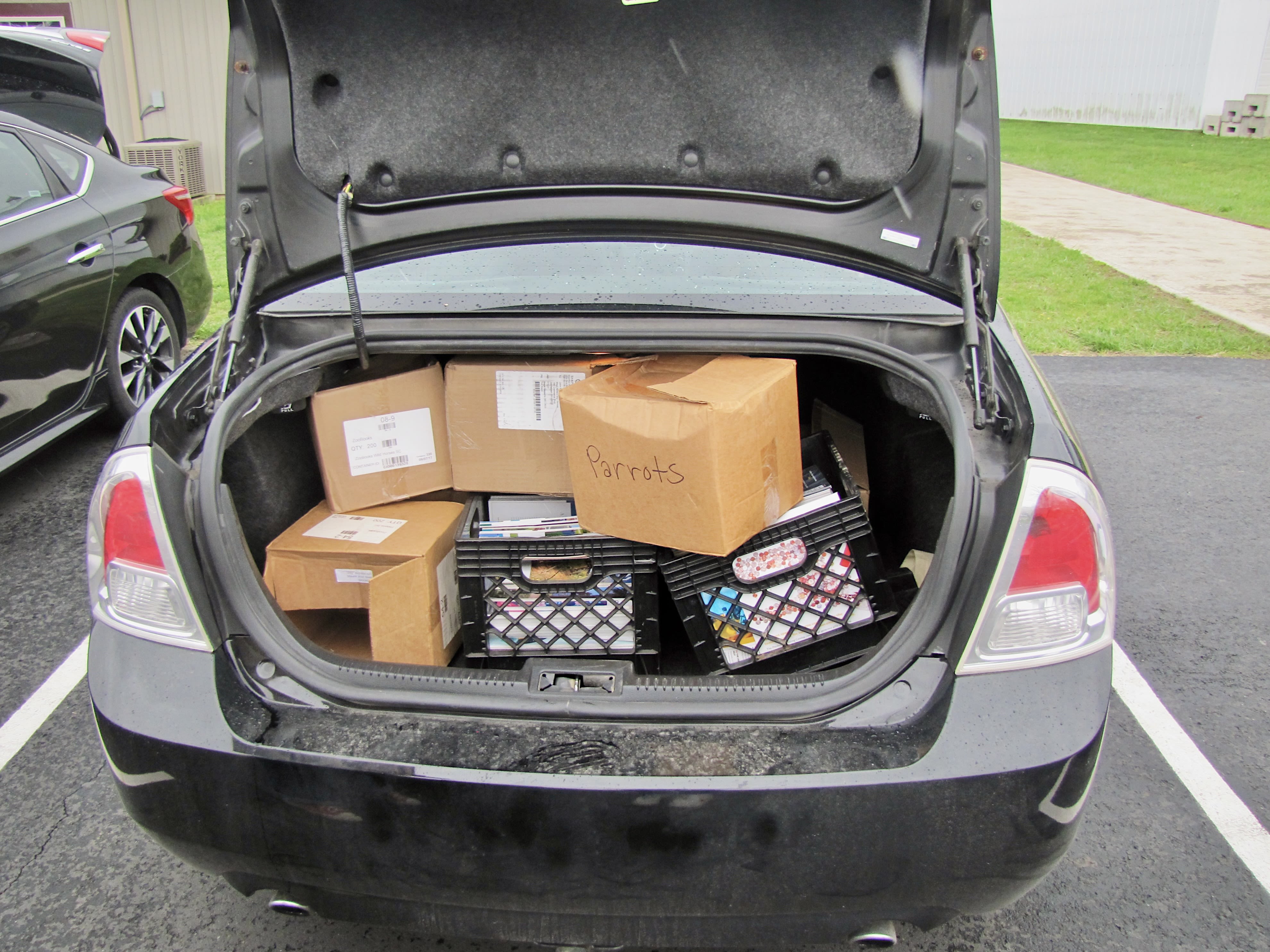
Mann's car — including her passenger seat and the entire back row of seats — was completely filled with magazines.
Mann's car — including her passenger seat and the entire back row of seats — was completely filled with magazines.

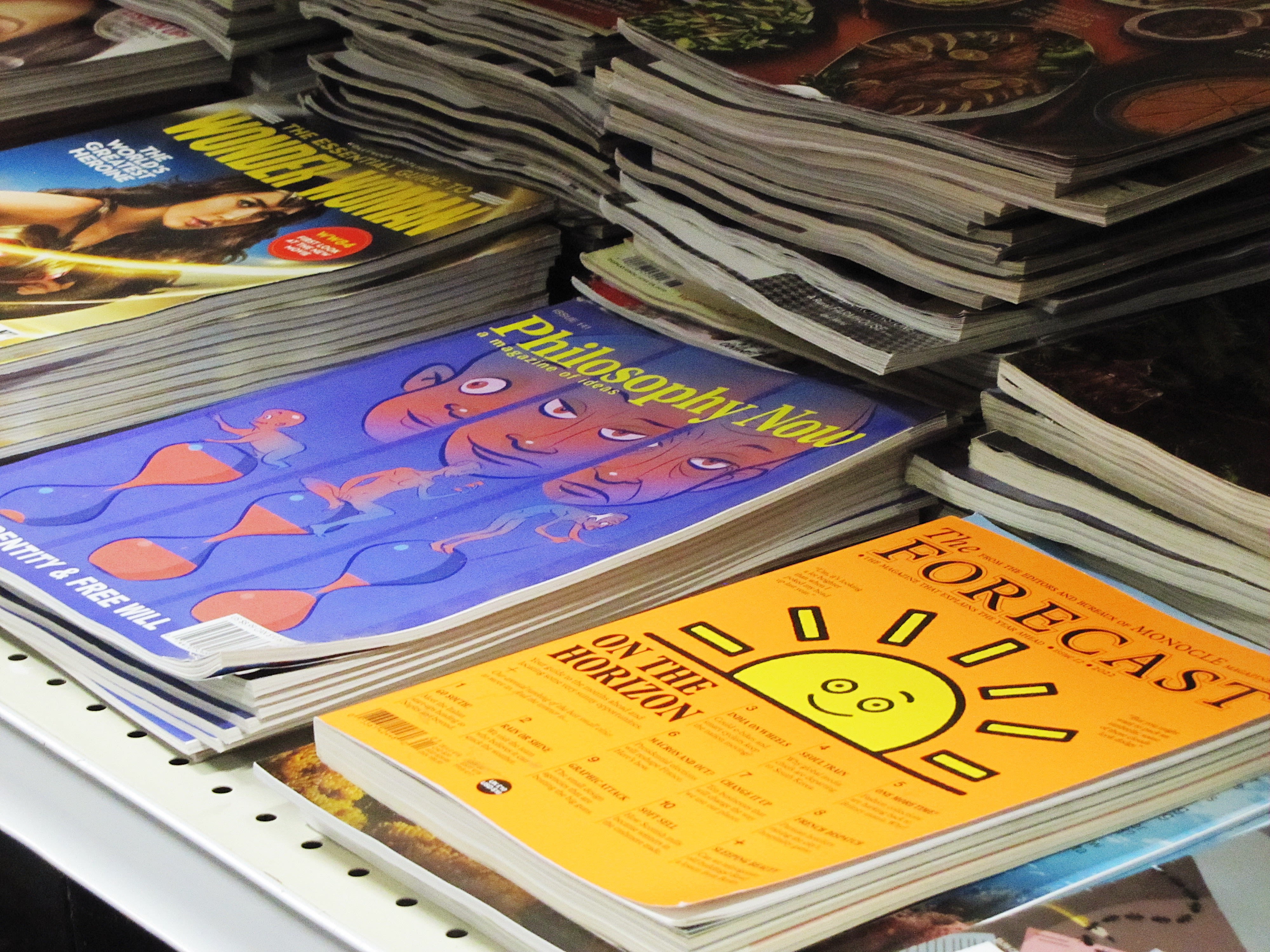
Magazines are a dentist's office’s commodity for fidgeting patients, filled with entertaining gossip about the royal family, Vogue photoshoots, tips and tricks for at-home meals, craft project ideas and informative news and feature stories.
Or at least, that is one interpretation of these periodicals sprawled on dining room tables and lining news racks at grocery stores.
But shift that view to that of MagLiteracy’s, and “magazines are the most powerful literacy engines” on Earth.
They are literature for anyone – anyone of any age, language, profession, educational background or interests. They are tools that can help launch lifelong readers and build self-esteem. Magazines are mechanisms of ownership.
Brin Glass writes for TheReportingProject.org, the nonprofit news organization of Denison University’s Journalism program, which is sponsored in part by generous donations from readers. Sign up for The Reporting Project newsletter here.
